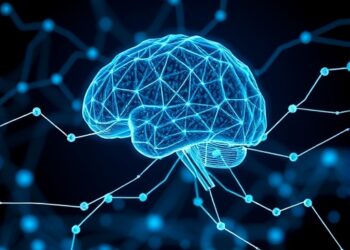Artificial intelligence (AI) could be a vital tool to promote peace, prevent violent conflict, and safeguard human rights – if used responsibly, experts say.
Artificial intelligence (AI) could be a vital tool to promote peace, prevent violent conflict, and safeguard human rights – if used responsibly, experts say.
Much focus has been on AI’s potential for catastrophic harm from powering drone swarms for international warfare to generating deep fakes which spread misinformation and prejudice.
But authors Branka Panic and Dr Paige Arthur say AI-driven technology should also be seen as a potential force for good in conflict-torn countries to ‘wage peace’.
With the ongoing wars in Ukraine and Gaza and three decades on from the Rwandan genocide, their book AI for Peace highlights concrete ways that AI tools are being used to support peace—not war. It shows how civil society organizations, universities, tech companies, international organizations and governments are already trying to harness the positive powers of machine learning, neural networks and natural language processing.
Amnesty International, the Carter Center and Microsoft are among those using AI for peacebuilding, prevention, and protecting freedoms. Identifying conflict hotspots, combating hate speech, assisting human rights investigations and analyzing the effects of climate change on conflict are some of the main areas being explored.
However, Panic and Dr Arthur warn that AI-enabled ‘peace tech’ must be governed by a new set of ethical and legal principles. Ethics must be embedded in every aspect of its use to prevent weaponization of data, bias, and other threats.
They say: “While AI can be a valuable tool to address various challenges of conflict and peace (when used responsibly), achieving peace requires multifaceted approaches.
“These encompass not only technological innovation but also human peacebuilders who understand peacemaking and conflict resolution practices, how to foster social and economic development, and the practice and politics of coordinating the collective efforts of governments, international organizations, and citizens themselves.
“By harnessing the capabilities of ethical AI to advance peacebuilding efforts, we can strive towards a future where technology and humanity converge to foster lasting peace.”
Published by CRC Press, AI for Peace is intended as a roadmap for peacebuilding practice. It looks at the latest advancements in this area and encourages a more active role for AI.
The authors say AI is not yet a ‘magic bullet’ for predicting wars but can analyse shifts in existing conflicts and track patterns of unrest.
Machines can also enable human rights work. Satellite technology has already been used to detect war crimes such as mass graves or labour camps. Adding AI to the toolkit can enable work with much larger amounts of data to show patterns that human monitors cannot identify alone.
As for climate change and conflict, the book says AI could further understanding. Climate change is a potential threat to peace because it can lead to food insecurity, economic instability and other factors which often cause unrest — although some experts believe evidence of causal link is weak.
Specific examples provided in the book of how AI is being utilised for peace include:
- Violence & Impacts Early-Warning System (ViEWS) which aims to forecast the potential for political violence in Africa and the Middle East.
- Perspective API which is attempting to fight toxic speech and is a collaboration between Google and Jigsaw.
- Amnesty International’s Citizen Evidence Lab – geospatial analysis combined with machine learning – which has found the clandestine graves of people missing in Mexico.
- The Carter Center, which tracks the dynamics of conflict in Syria in partnership with Microsoft’s AI for Good team.
AI for Peace does sound a cautious note around the risks from AI unless it is properly regulated. The authors argue that AI can help human rights defenders but can also contribute to human rights harm.
Panic and Dr Arthur cite the example of how Facebook algorithms continue to be used for violence in places like Ethiopia (in spite of many safeguards Facebook has put in place) and the controversies around Amazon’s Rekognition tool.
Risks to vulnerable people, data manipulation, and challenges of private sector involvement are among many issues to be addressed in the use of AI for peace, they add.




